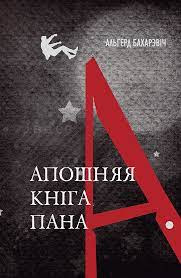When it comes to writing reviews, I do not have too many rules that I have to follow. I do not let bad production overshadow the quality of songwriting, and there is no particular number of listens that I need to give to an album to be able to make a more or less objective assessment (could sometimes be one but could often be seven). Still, there are two things which seem important to me. First, each work of art should be treated on its own terms. Second, and I know how controversial this is going to sound, a good album is a good album.
Which is all to say - I do not give a damn what Mark E. Smith's sisters think. And I most certainly do not care whether fans of The Fall find the release of this album offensive or in bad taste. The Fall could well be my favourite band of all time, and I am not offended that five of its former members decided to record a new album of original music.
The said members were all part of The Fall at various points of the band's extensive run. Still, it is the presence of Steve Hanley that made me excited in the first place. Not just because Steve Hanley wrote what I consider to be one of the two or three greatest rock autobiographies of all time (The Big Midweek: Life Inside The Fall really is as good as all that), but because for decades (decades are centuries in The Fall) his bass guitar defined the sound of Mark E. Smith's band. As a matter of fact, Smith knew this better than anyone and up until the final break-up in the late 90s kept asking Hanley to come back.
And now Steve Hanley's bass is all over House of All, along with Pete Greenway's sharp guitar lines, pounding drums courtesy of Paul Hanley and Simon Wolstencroft as well as the distinctive voice of Martin Bramah. The musicianship here is terrific, and while the influence of The Fall is transparent (obliquely charismatic lyrics, repetitive grooves, spoken word singing), none of it sounds like a parody. Quite simply, the five men spent too much time in that brilliant and deranged institution (The Fall) to be left unscarred. So the influence is there, the effects are palpable, but in the end it is all about the songs. And the songs are excellent.
As soon as I hear the powerful bassline at the beginning of "Ayenbite", I know I am not going to be disappointed. All they need to do is to settle into a good groove, and they do that effortlessly. After the pleasantly wistful "But Wilful I Am", we arrive at the magnetic minimalism of "Dominus Ruinea" and the enigmatic and ominous-sounding "Harlequin Duke" (I have to say: that title does remind me of Genesis). The second side opens with the classic repetitive pop of "Magic Sound" (whose chorus will stay with you for days), then continues with the beautifully titled "Minerva Disrobed" which is propelled by a classic guitar groove coupled with a memorable keyboard line. After the relentless "There's More", we finish with the ageless pop-rocker "Turning Of The Years" which could well be my favourite song on the album.
There is a lot of personality in these songs, and personality is not something you can get cheap. They just have it. I do not view this album as disrespectful or unnecessary - I view it as a great collection of songs from five musicians who have something to say. That this 'something' happens to be 'a lot', is hardly surprising. Having said that, the "Harlequin Duke" bassline alone is worth the admission price. And yes, I do hope there is more.
Rating: ★★★★


